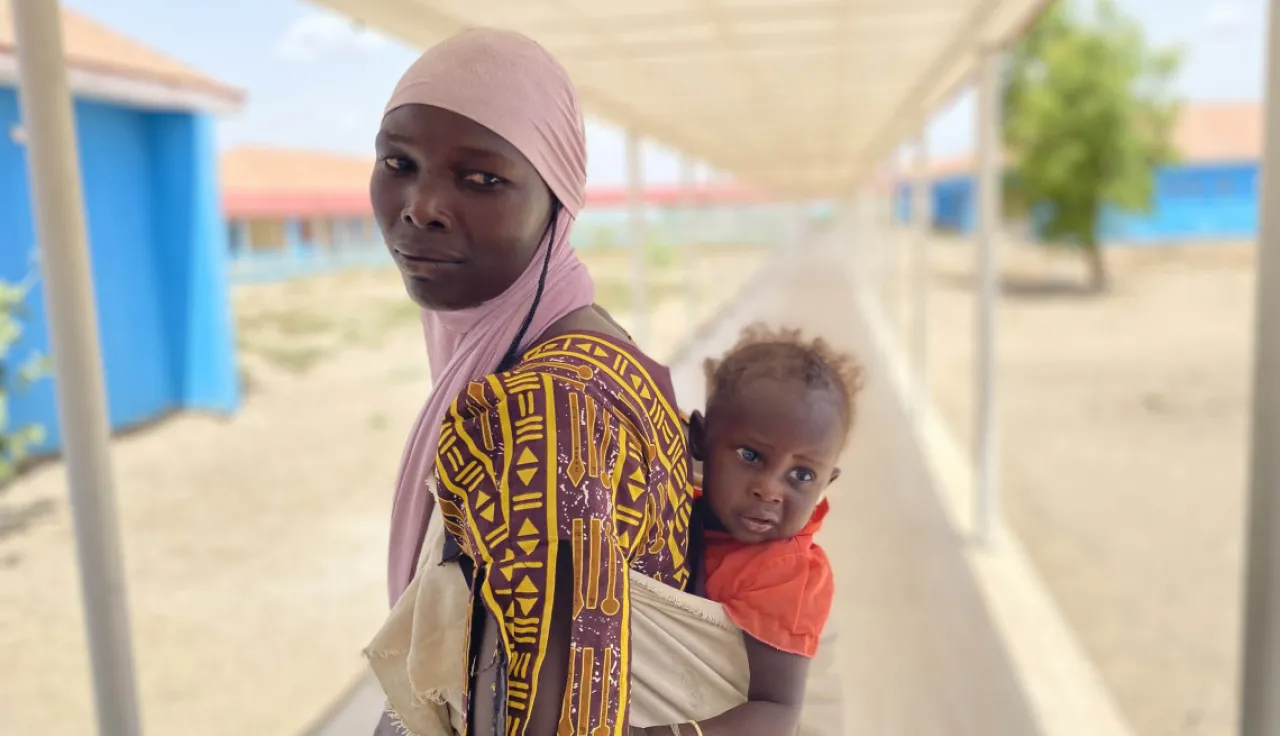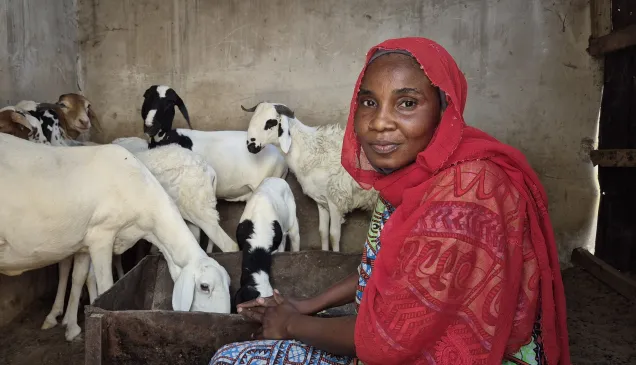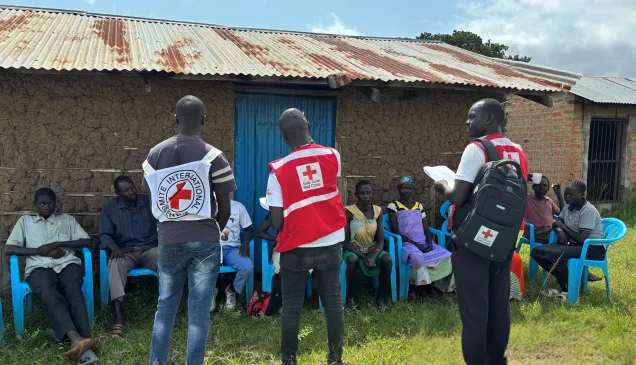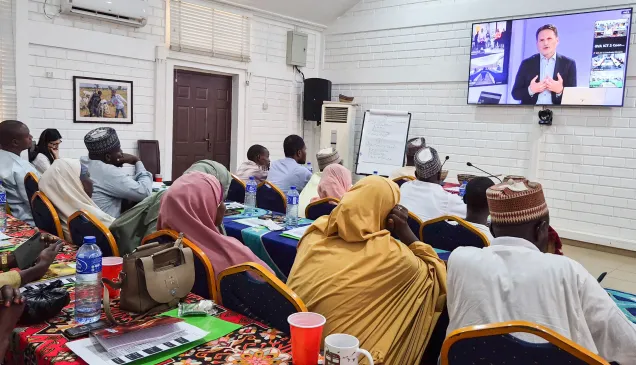Nigeria: Ensuring Access to healthcare in rural Rann

In northeast Nigeria, Hadiza Hussaini was given no choice but to leave her home when fighting reached her village of Wumbi.
"It was at night during the first week of the 2016 Ramadan fast. We started hearing sporadic gunshots and, with no time to pack any belongings, we all fled," she recalls.
In the rush to seek safety, she and her husband became separated – and wouldn't find each other for more than a year. They were later reunited in Rann. Attempts to return home were futile, as fighting erupted again.
The mother of four now lives in a camp for displaced persons in the town of Rann, in Nigeria's far northeast. It's been seven years since they were displaced due to armed conflict. With recent relative safety and stability, healthcare access has also improved.
"My daughter Aisha was delivered here at Rann Healthcare Centre. The centre offers free services," Hadiza says.
Rann Healthcare Centre is one of many healthcare facilities the ICRC supports in Nigeria with regular donations of medicine, hospital consumables and trainings.
After arriving in a helicopter, mule carts, a common mode of transportation in Rann, deliver the medicine where it is needed.

Medical supplies are ferried by mule cart to Rann primary healthcare centre after they are delivered to Rann by helicopter
300 kilograms of medicine are supplied monthly to Rann primary healthcare centre including antimalarials, antibiotics, multivitamins, and oxytocin plus mosquito nets and 'mama' kits for pregnant and expecting mothers. The centre is also supplied with soap used for maternal care.
Healthcare officials administer medicine for free to the community, which relies on their regular resupply – especially during the rainy season, when flooding is most common.
"This medical supply is very valuable to the people of Rann," says Abacha Mai, who runs the clinic in Rann. "The supply involves ICRC staff working alongside local government personnel to serve people staying in camps, to ensure they receive free treatment."
At the Rann health centre, we also support capacity building on issues ranging from reproductive and health education to infection prevention and waste disposal.



